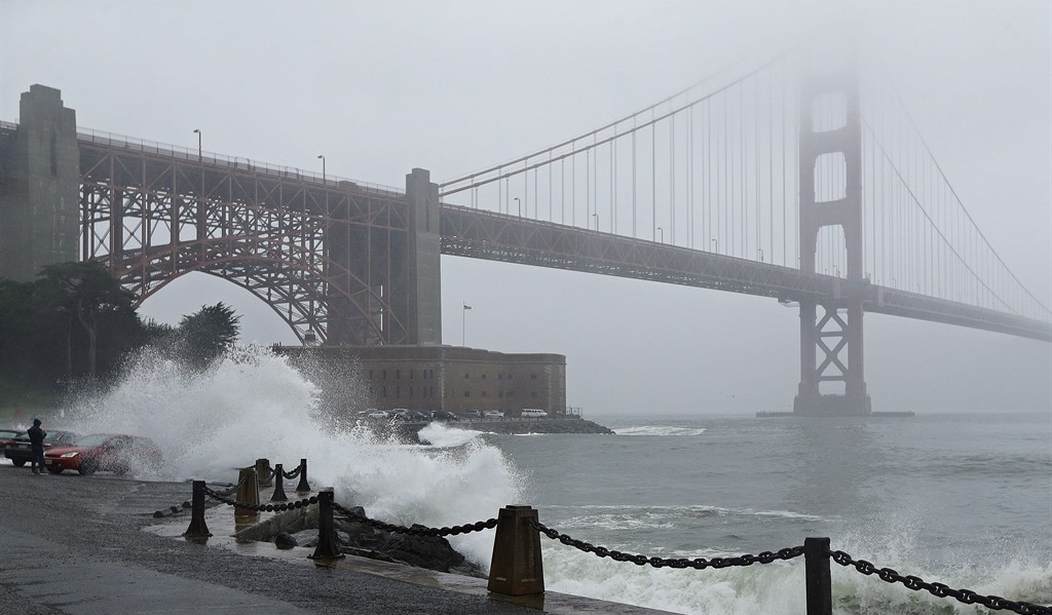Capital vs. countryside -- that's the new political divide, visible in multiple surprise election results over the past 11 months. It cuts across old partisan lines and replaces traditional divisions -- labor vs. management, north vs. south, Catholic vs. Protestant -- among voters.
This was apparent last June in Britain's referendum on whether to leave the European Union. London voted 60 percent to remain, while the rest of England, whether Labour or Conservative, voted 57 percent to leave. It was plain in Colombia's October referendum on a peace settlement with the FARC guerrillas. Bogota voted 56 percent "si," the heartland cordillera provinces 58 percent "no."
In both countries, the ethnic and geographic fringe -- Scotland and Northern Ireland, the Caribbean provinces -- voted with the capital. But in each case, the historic heartland, with the majority of voters, produced a surprise defeat for the capital establishment.
It was a similar story here in November. Coastal America -- the Northeast minus Pennsylvania, the Pacific states minus Alaska -- favored Hillary Clinton over Donald Trump by a 58-35 percent margin. But the geographic heartland, casting 69 percent of the nation's votes, favored Trump by a 51-43 percent margin.
The contrast is even starker if you separate out the establishment metro areas -- New York, Washington, Los Angeles, San Francisco -- that produce most Democratic big-dollar funding. They voted 65-29 percent for Clinton; the rest of the country they feel entitled to rule voted 49-45 percent for Trump.
Recommended
And on April 23, France voted in a presidential race that scrambled the usual party divisions. Marine Le Pen, shunned by the Paris establishment as a neofascist, finished fourth, with 11 percent of the vote, in metro Paris and third, with 15 percent, in 13 other prosperous cities. But she ran first in la France profonde, with 24 percent. She'll almost certainly lose the May 7 runoff, but she has already topped her National Front's previous high of 17 percent.
Is there any precedent for this? The Economist's Bagehot columnist, Adrian Wooldridge, spots one in the 17th century. He quotes historian Hugh Trevor-Roper's description of the "general crisis" of 1620-60 -- a "revolt of the provinces not only against the growing, parasitic Stuart Court, but also against the growing 'dropsical' City of London; against the centralised Church ... and against the expensive monopoly of higher education by the two great universities."
The capital vs. the countryside, in other words, much like today. The countryside party, Trevor-Roper writes, vied to "pare down the parasitic fringe" of central government and sought to "protect industry," "rationalize finance" and "reduce the hatcheries which turned out the superfluous bureaucrats."
Similar impulses are apparent in Britain, France and America today. In different ways, Brexit, Le Pen and Trump seek to counter the university-trained bureaucratic, financial and cultural elites in London, Paris and NY/DC/LA/SF. They resent overlarge and undercompetent bureaucracies and public employee unions, the paymasters of the Labour and Democratic parties. With blunt, often ill-advised rhetoric, they challenge the pieties of the universities as 17th-century countryside parliamentarians challenged the established church and universities.
Consider the debate over what has become, for many, the religion of global warming. Those with doubts that predicted harm will occur are labeled "deniers," heretics who must be punished. The science is settled, the elites insist. That's exactly what the church told Galileo.
Or consider the "speech codes" promulgated by most colleges and universities. We see violent disruption of speakers on campus go unpunished, excused and even praised. We see The New York Times publish an article by a New York University dean arguing for restricting free speech.
We see the deadweight cost of public employee union pensions and unpoliced murders destroying one of the great creations of civilization, Chicago. No wonder the countryside resists; this is how these arrogant bullies govern the precincts of society they control.
In this struggle, the capital has certain advantages -- huge supermajorities in its strongholds, inhabited largely by elites and ethnic, racial and religious minorities. It monopolizes most established media. Its claims that opponents are bigots are taken as gospel.
The countryside has serious grievances and majority numbers but doesn't always find steady leadership. Le Pen's insalubrious pedigree suggests she'll lose May 7, though Theresa May's icy steeliness has British Conservatives headed to a landslide win June 8. Donald Trump instinctively (calculatedly?) reckoned that the countryside was the key to victory; now he has to deliver. The battles of capital vs. countryside will go on.
























Join the conversation as a VIP Member